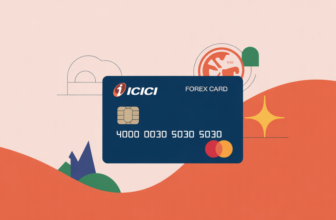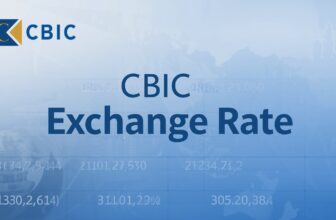
The dynamic landscape of forex trading demands a keen awareness of potential scams that can compromise your investments. This comprehensive guide unveils the deceptive practices employed by forex scammers and provides practical tips to shield yourself from financial fraud in the forex market.
To spot a forex scammer, scrutinize offers that seem too good, avoid cryptocurrency requests, verify social media advisors, question guaranteed returns, check unbiased broker reviews, consult regulator blacklists, and confirm broker regulation. Stay informed and exercise caution.
Key Takeaways:
- Be cautious of unregulated forex brokers.
- Look for transparency in broker operations.
- Avoid brokers who use high-pressure sales tactics.
- Do thorough research on brokers and verify their licenses.
- Stay skeptical of unrealistic promises and too-good-to-be-true offers.
How to Spot a Forex Scammer
The forex market has seen a rise in forex scams, making it crucial for traders to be able to spot and avoid scammers. Forex scams involve fraudulent activities that deceive individuals into investing in the forex market with false promises of high returns and guaranteed profits. To protect yourself, it is important to understand the tactics used by scammers and be aware of the warning signs. Some red flags include unregulated brokers, lack of transparency, pressure tactics, unrealistic promises, and poor customer reviews. Researching forex brokers and verifying their licenses is essential in preventing scams. Stay vigilant and skeptical of any offers that sound too good to be true.
With the mass of forex scams, perpetrators deploy an array of tactics to deceive unsuspecting traders. From false product claims to impersonation of reputable figures, scammers exploit vulnerabilities to lure victims into their traps. For instance, a common ploy involves setting up sham websites that imitate well-known brokers, tricking traders into depositing funds.
Recognizing Red Flags in Forex Scams
- Examining the Fine Print and Broker’s Terms: Traders must exercise diligence by scrutinizing the fine print and terms of their chosen broker. Often, scammers hide crucial details in the fine print, leading traders to unintended consequences. An example includes promises of ‘guaranteed returns’ buried in complex terms that make it challenging for traders to discern the actual risks.
- The Reversibility of Cryptocurrency Transactions and Its Risks: Scammers frequently request payments in cryptocurrency, leveraging its irreversible nature. Legitimate brokers accept a variety of currencies and payment methods. Any insistence on cryptocurrency payments should raise suspicions, as scammers exploit the anonymity and irreversibility of such transactions.
- Exercising Caution with Social Media Influencers in Finance: The rise of self-proclaimed financial gurus on platforms like WhatsApp and Instagram poses a threat. Scammers impersonate influential figures, convincing followers to invest in fraudulent schemes. Traders should be wary of making financial decisions based solely on advice from social media influencers, conducting thorough research instead.
- Identifying Red Flags in Profit Assurance Claims: Scammers often lure victims with promises of guaranteed profits, a major red flag. Unbalanced claims and the use of the term ‘guaranteed’ signal potential deception. Traders must remain vigilant, as no investment, including government bonds, can guarantee profits.
Essential Tips to Navigate the Forex Market Safely
- Delving into Offer Details and Broker’s Terms: Traders are urged to thoroughly examine offers that appear too good to be true. Exploring the details, reading the fine print, and understanding broker terms and conditions are vital steps to avoid falling victim to fraudulent schemes.
- The Irreversibility of Cryptocurrency Transactions – A Potential Trap: Understanding the risks associated with cryptocurrency payments is crucial. Legitimate forex brokers provide multiple payment options, emphasizing the importance of caution when faced with requests for cryptocurrency transactions.
- Verifying Financial Advisors Beyond Social Media: Traders should exercise skepticism when encountering financial advice on social media. Seeking information beyond platforms like WhatsApp and Instagram, such as verifying the advisor’s credentials and conducting independent research, is essential for making informed decisions.
- Identifying Red Flags in Profit Assurance Claims: Recognizing unbalanced claims and promises of guaranteed profits is paramount. Traders must stay alert to avoid falling for deceptive tactics that prey on the desire for quick returns.
- Utilizing Independent Reviews for Informed Decisions: Checking broker reviews from impartial sources is a crucial step. Independent reviews offer insights into a broker’s credibility, providing traders with valuable information to make informed decisions, similar to researching products on platforms like Amazon.
- A Proactive Approach to Identifying Untrustworthy Brokers: Reference regulator blacklists to ensure the chosen broker is not flagged as potentially fraudulent. Proactively checking for warning lists from national regulators adds an extra layer of security for traders.
- Steps to Confirm Broker Regulation and Legitimacy: Ensuring a broker is regulated is fundamental to a secure trading experience. Traders are advised to verify the broker’s license number and regulator information, using the relevant regulatory body’s website to confirm legitimacy. Requesting confirmation emails from the broker’s official domain further safeguards against potential impostors.
Common Types of Forex Scams
Avoiding Unlicensed or Lightly Regulated Forex Brokers:
Unregulated brokers operating in disreputable jurisdictions pose a significant risk. Traders should steer clear of brokers lacking legitimate regulation, as they may engage in questionable or outright fraudulent practices.
The Downfall of Binary Options in Forex Trading:
Binary options, considered akin to gambling, present an ‘all-or-nothing’ bet on price movements. The Australian Securities & Investments Commission (ASIC) banned binary options until 2031 due to the high percentage of traders losing money.
Spotting Imposters – The Rise of Clone Firms:
Scammers often impersonate real brands through clone firms, using fake websites and spoofed emails. Legitimate firms are easily contactable with verifiable headquarters’ addresses.
Social Media’s Role in the Rise of Forex Scams:
Scammers exploit social media platforms to impersonate high-profile traders and businesses, creating imposter accounts to deceive unsuspecting traders.
Navigating Forums and Identifying Legitimate Signal Providers:
Scam trading signal providers often make unbalanced claims, charging subscriptions for access. Traders can identify legitimate signal providers by researching unbiased reviews and guides from credible sources.
Churning and Its Consequences in Forex Trading:
Scam fund managers engage in churning, conducting excessive trades to generate commissions while exposing traders to significant losses.
The Pitfalls of Scam Copy Trading Providers:
Scam copy trading providers churn accounts excessively, aiming to earn commissions at the expense of traders. Genuine providers should have a viable trading plan.
Warning Signs of Forex Scams
When it comes to forex trading, it is essential to be able to spot and avoid potential scams. By recognizing the warning signs of fraudulent activity, you can protect yourself from falling victim to forex scams. Here are some red flags to watch out for:
Unbalanced Claims
One of the most common indicators of a forex scam is when scammers make unrealistic promises of guaranteed profits while downplaying the risks involved in trading. Be wary of anyone who claims that you can earn substantial returns with little to no effort.
High-Pressure Sales Tactics
Scammers often use aggressive tactics to pressure individuals into investing money or cryptocurrencies. They may create a sense of urgency and push you to make quick decisions without fully understanding the risks or terms of the investment.
Lifestyle Pictures and Testimonials
Beware of brokers who showcase luxurious lifestyles or provide testimonials from “successful” traders. Genuine brokers focus on education, analysis, and providing valuable trading resources rather than flashy displays of wealth.
Unregulated Brokers
Choosing a reputable and regulated forex broker is crucial to ensure the safety of your investments. Scammers may operate as unregulated brokers, making it difficult to recoup your funds if things go wrong.
Binary Options Scams
Binary options scams involve schemes that promise high returns through binary options trading. These scams often manipulate the trading platform, making it nearly impossible for investors to profit.
Clone Firms
Scammers may impersonate legitimate brokers by creating clone firms with similar names and branding. Always double-check the official website and contact details of a broker before making any investments.
Social Media Scams
Be cautious of unsolicited investment opportunities promoted on social media platforms. Scammers often use social media as a platform to lure unsuspecting individuals into their fraudulent schemes.
Scam Signal Providers
Some scammers advertise signal services that claim to provide accurate trade recommendations. However, these signals are often unreliable and designed to manipulate traders into making losing trades.
Scam Fund Managers
Fraudulent fund managers may promise extraordinary returns on your investment, but they often mismanage funds or engage in Ponzi schemes. Always conduct thorough research and verify the credentials of fund managers before entrusting your money to them.
By keeping an eye out for these warning signs, conducting thorough research, and exercising skepticism when it comes to extraordinary claims, you can protect yourself from falling victim to forex scams.
Protecting Yourself from Forex Scams
To protect yourself from forex scams, it is crucial to take proactive measures and remain vigilant. The first step is conducting thorough research on brokers before investing. Check if the broker is regulated by a recognized financial authority and verify their licenses. This will help ensure that you are dealing with a legitimate and trustworthy broker.
Another important aspect to consider is customer reviews and feedback. Negative reviews or a lack of positive feedback can be red flags indicating a potential scam. Take the time to read reviews and testimonials from other traders to get insights into their experiences with the broker.
Watch out for brokers who employ aggressive sales tactics and make unrealistic promises. Genuine brokers will never pressure you into making quick investment decisions or guarantee high returns. Remember, if an offer sounds too good to be true, it probably is.
If you have been victimized by a forex scam, it is important to take immediate action. Report the scam to the appropriate authorities, such as your local financial regulator, and seek legal advice. Sadly, recovering funds from scammers can be challenging, but reporting the scam can help prevent others from falling into the same trap.
By staying informed, conducting thorough research, and remaining cautious, you can protect yourself from forex scams and safeguard your investments. Remember, prevention is always better than cure when it comes to scams in the forex market.
FAQ
Some warning signs of forex scams include unregulated brokers, lack of transparency, pressure tactics, unrealistic promises, and poor customer reviews.
Some red flags to identify potential forex scams include unbalanced claims, high-pressure sales tactics, lifestyle pictures or testimonials from “successful” traders, and unregulated brokers.
You should be aware of scams such as unregulated brokers, binary options scams, clone firms, social media scams, scam signal providers, and scam fund managers.
To protect yourself from forex scams, conduct thorough research on brokers, check regulatory bodies, verify licenses, pay attention to customer reviews and feedback, be cautious of brokers who pressure you into quick investment decisions, and be skeptical of systems or services that promise unrealistic results.
If you have been scammed in forex trading, report the scam to the appropriate authorities and seek legal advice. Recovering funds can be challenging, but taking action is important.

















